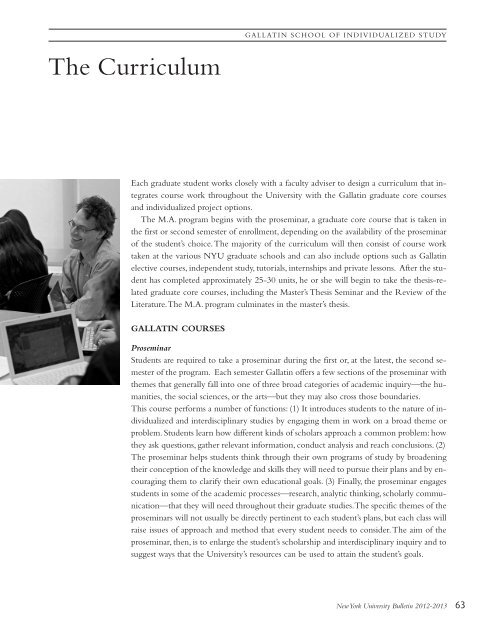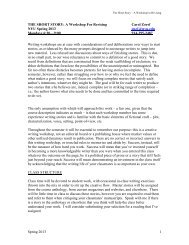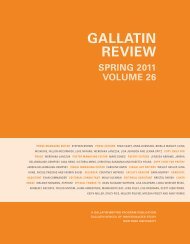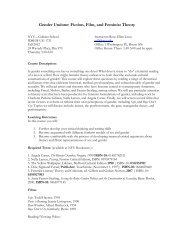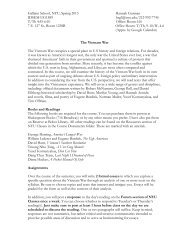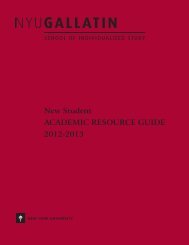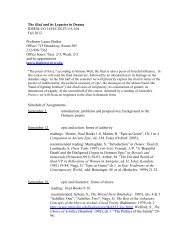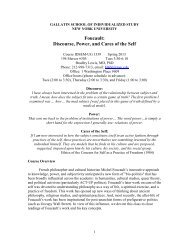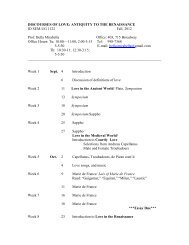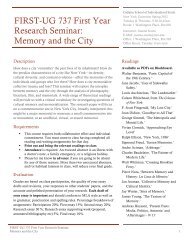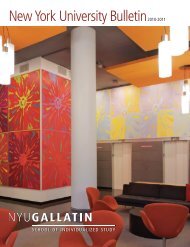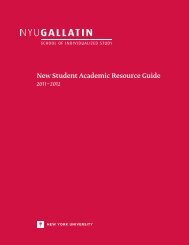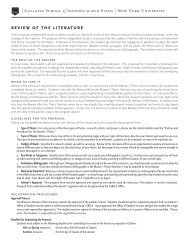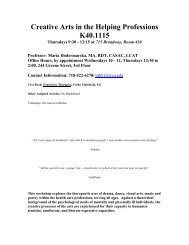New York University Bulletin - Gallatin School of Individualized ...
New York University Bulletin - Gallatin School of Individualized ...
New York University Bulletin - Gallatin School of Individualized ...
You also want an ePaper? Increase the reach of your titles
YUMPU automatically turns print PDFs into web optimized ePapers that Google loves.
The CurriculumGALLATIN SCHOOL OF INDIVIDUALIZED STUDYEach graduate student works closely with a faculty adviser to design a curriculum that integratescourse work throughout the <strong>University</strong> with the <strong>Gallatin</strong> graduate core coursesand individualized project options.The M.A. program begins with the proseminar, a graduate core course that is taken inthe first or second semester <strong>of</strong> enrollment, depending on the availability <strong>of</strong> the proseminar<strong>of</strong> the student’s choice.The majority <strong>of</strong> the curriculum will then consist <strong>of</strong> course worktaken at the various NYU graduate schools and can also include options such as <strong>Gallatin</strong>elective courses, independent study, tutorials, internships and private lessons. After the studenthas completed approximately 25-30 units, he or she will begin to take the thesis-relatedgraduate core courses, including the Master’s Thesis Seminar and the Review <strong>of</strong> theLiterature.The M.A. program culminates in the master’s thesis.GALLATIN COURSESProseminarStudents are required to take a proseminar during the first or, at the latest, the second semester<strong>of</strong> the program. Each semester <strong>Gallatin</strong> <strong>of</strong>fers a few sections <strong>of</strong> the proseminar withthemes that generally fall into one <strong>of</strong> three broad categories <strong>of</strong> academic inquiry—the humanities,the social sciences, or the arts—but they may also cross those boundaries.This course performs a number <strong>of</strong> functions: (1) It introduces students to the nature <strong>of</strong> individualizedand interdisciplinary studies by engaging them in work on a broad theme orproblem. Students learn how different kinds <strong>of</strong> scholars approach a common problem: howthey ask questions, gather relevant information, conduct analysis and reach conclusions. (2)The proseminar helps students think through their own programs <strong>of</strong> study by broadeningtheir conception <strong>of</strong> the knowledge and skills they will need to pursue their plans and by encouragingthem to clarify their own educational goals. (3) Finally, the proseminar engagesstudents in some <strong>of</strong> the academic processes—research, analytic thinking, scholarly communication—thatthey will need throughout their graduate studies.The specific themes <strong>of</strong> theproseminars will not usually be directly pertinent to each student’s plans, but each class willraise issues <strong>of</strong> approach and method that every student needs to consider.The aim <strong>of</strong> theproseminar, then, is to enlarge the student’s scholarship and interdisciplinary inquiry and tosuggest ways that the <strong>University</strong>’s resources can be used to attain the student’s goals.<strong>New</strong><strong>York</strong> <strong>University</strong> <strong>Bulletin</strong> 2012-2013 63


